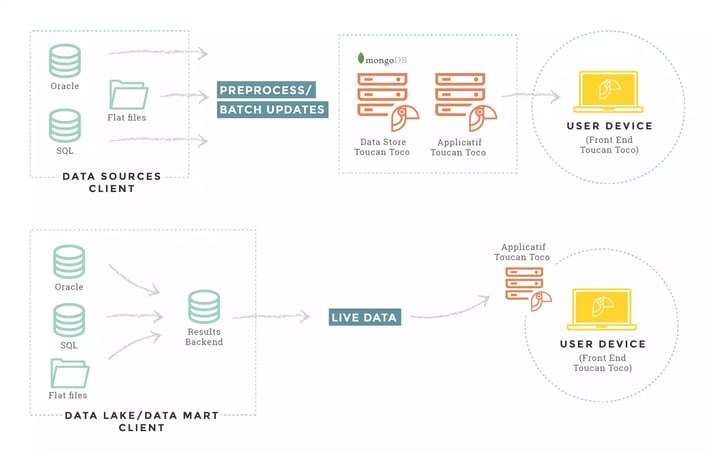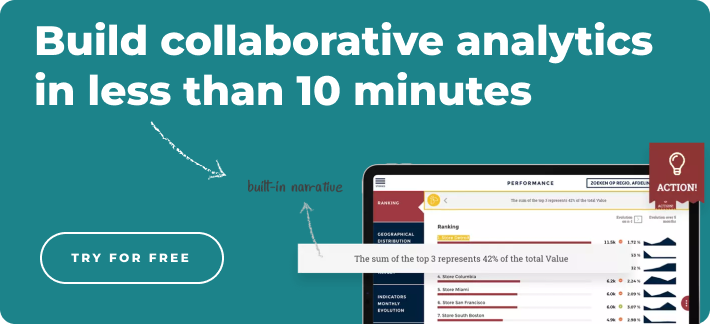Data Accessibility - What does it mean?
In your organization, data accessibility refers to the ability to see and use your company's data.
In order to access the data efficiently, it is not enough to know that it resides on some platform or another and if someone really needed it, they could request a very specific report. As the name implies, data accessibility refers to the ease of accessing and using your data.
Data accessibility is the key to unlocking the potential leaders speak of when they envision a data-driven organization. When the data is accessible, different departments can use it to reach their objectives in a timely manner.
- Sales teams can use data to fine-tune their pipelines & playbooks.
- Customer support needs data to identify recurring problems and allocate resources.
- Marketing teams can build personalized customer journeys using data.
- C-suite can use data to track project progress and company goals.
There are a number of factors that can drive your organization forward, but they all require data and access to that data. In spite of the fact that 99% of organizations stated that they were investing in data, only 24% reported their organizations were data-driven in the past year - a decrease of 37.8% from the year before. Why are so few companies reporting data if they are trying to gather and leverage data?
Our ability to gather data has grown much more rapidly than our ability to make that data accessible. There is a lack of clarity regarding how companies can make their data available and useful to various departments and employees. There is a common misconception that full-scale data accessibility would require such a large investment of resources that it would not be feasible.

Data accessibility can have a number of huge benefits for your company culture:
- Processes and requests can be expedited by access to data. The siloing of data within certain departments or among certain individuals create barriers that take time for individuals to overcome. As a result, your processes are slowed down. Customers today expect a real-time experience and responsiveness, which can seriously adversely affect your business.
-
Making informed decisions is easier when you have access to data. There is a shift in power dynamics among today's leading companies. There is no longer a need for a small group of individuals to hold onto data in order to strengthen their positions. The distribution of data access ensures that every team member has a voice. As a result, they are able to make more meaningful contributions if they are provided with the necessary resources.
-
Gatekeeping can be prevented by improving data access. Gatekeeping, whether it is intentional or unintentional, is problematic. In the event that only one person has access to your data, what happens when that person is involved in a major process? What if they are out of office on the day that a critical data request is needed? By moving away from gatekeepers, data accessibility ensures that your organization will not encounter roadblocks.


